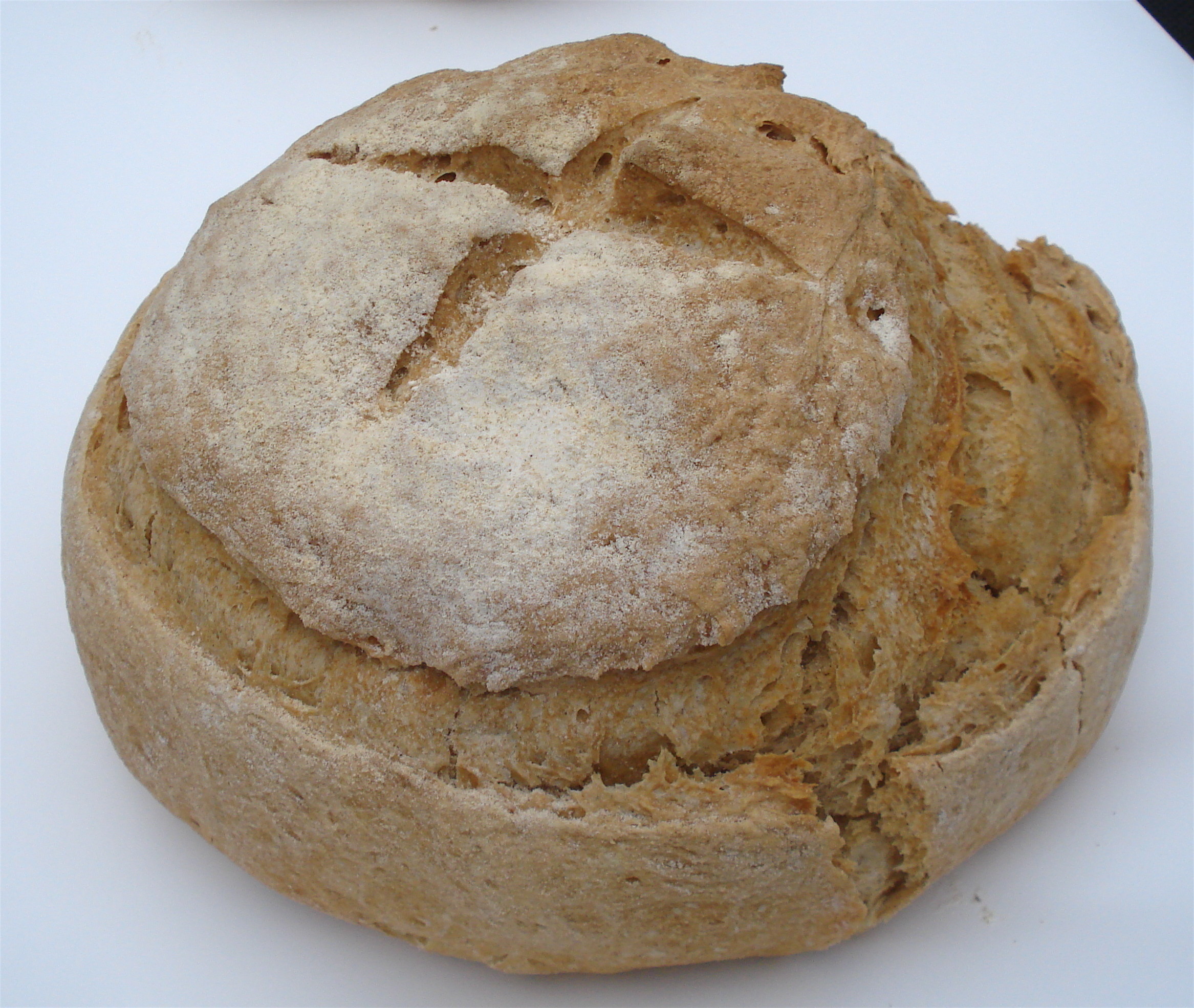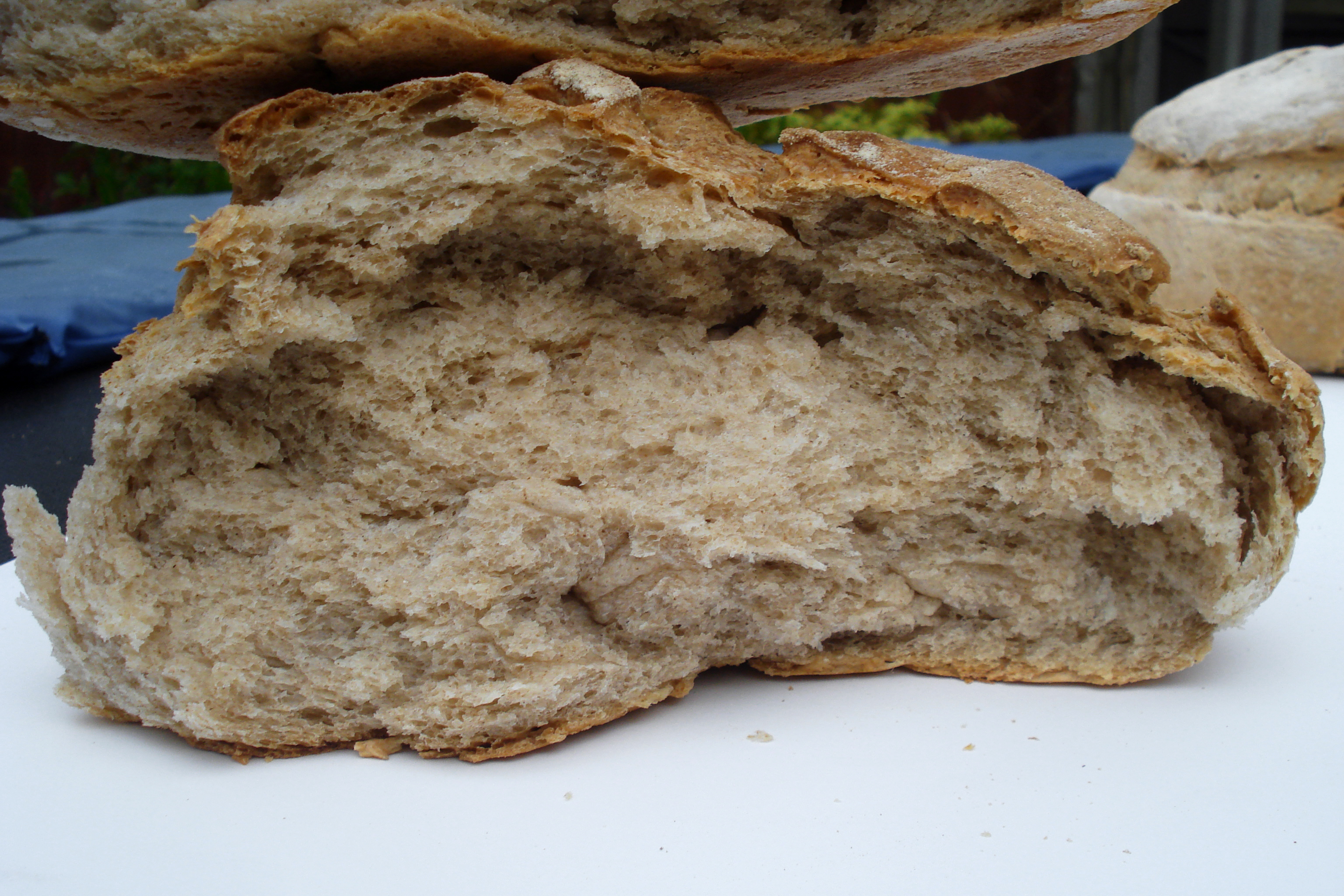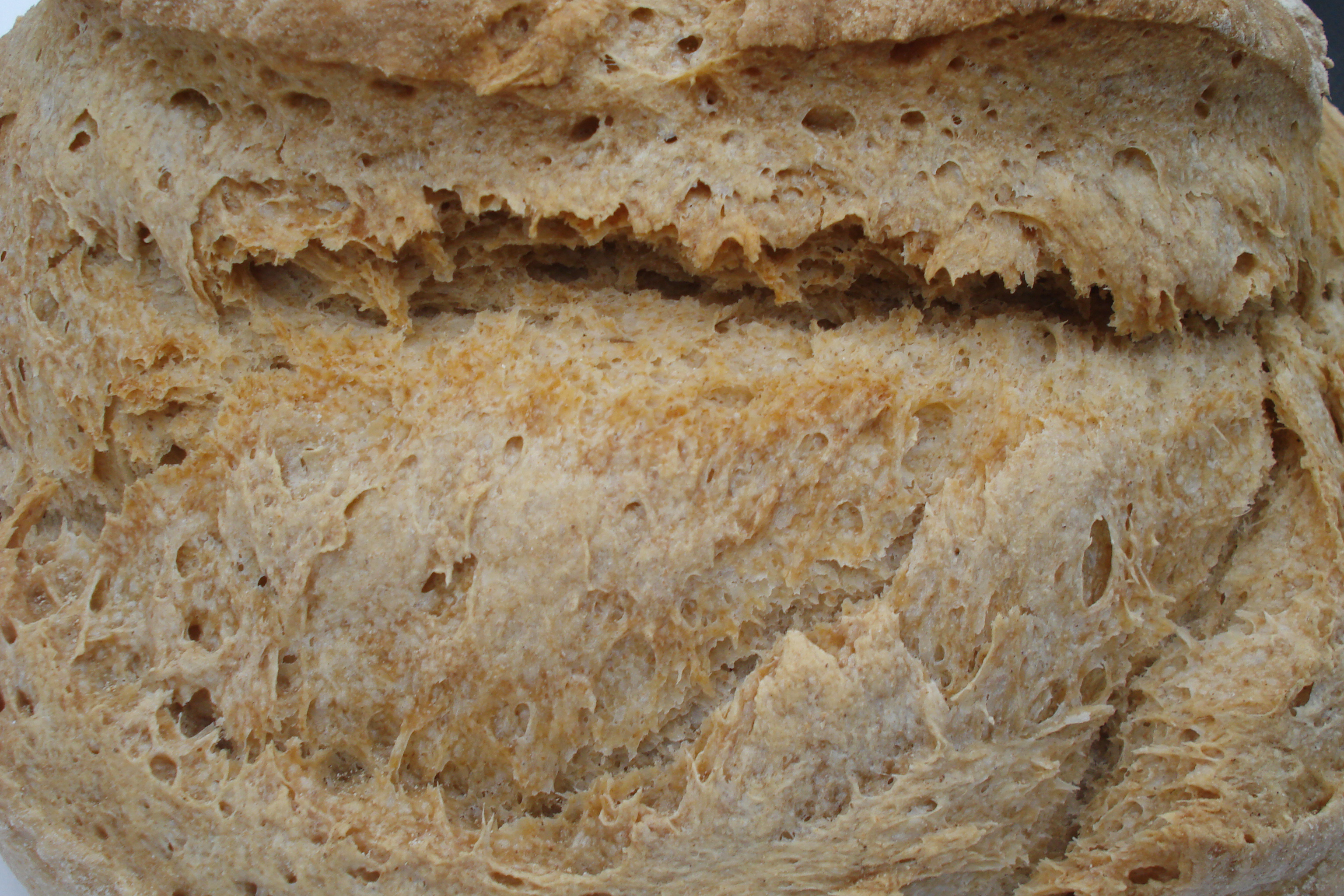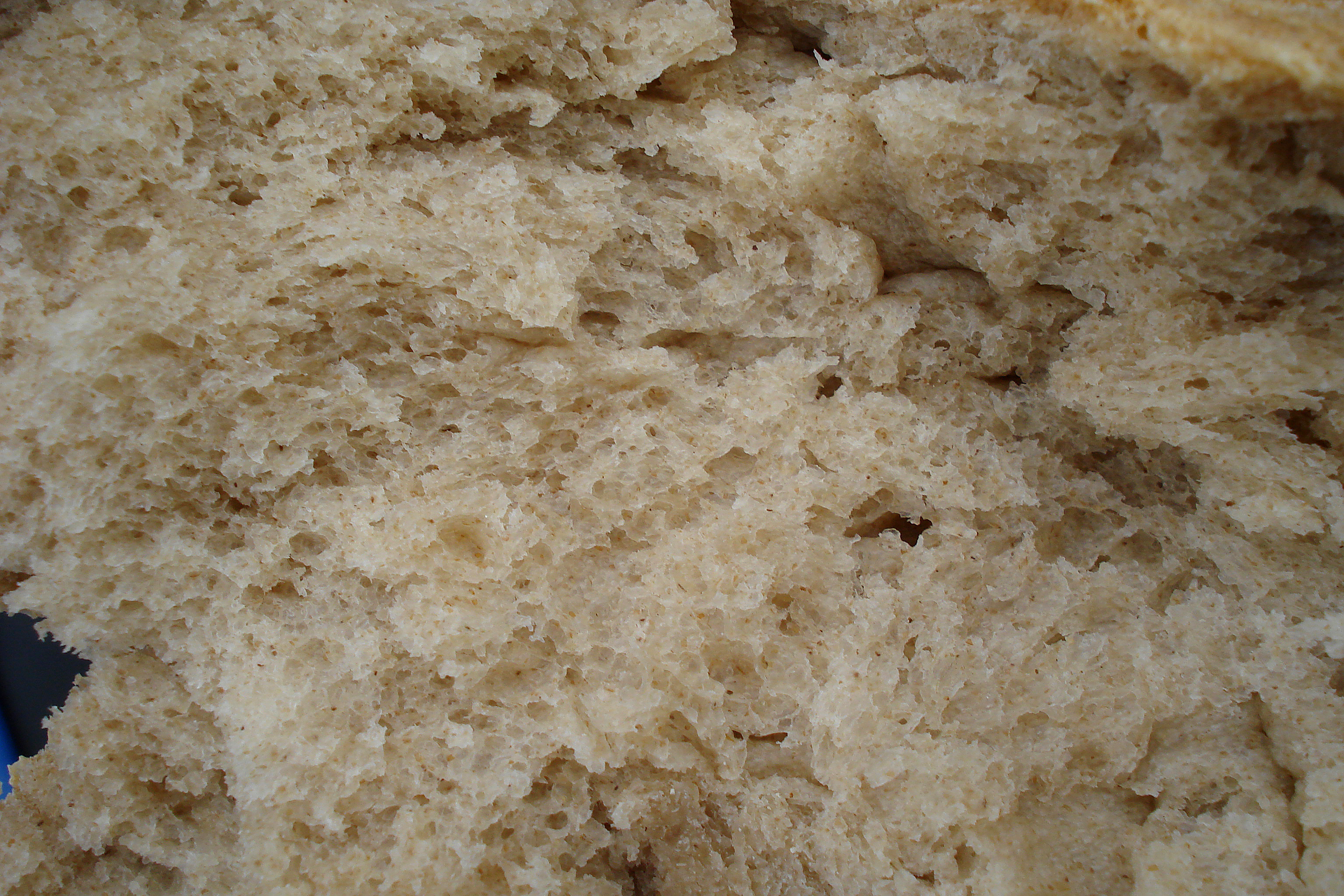 |
| Oxford bread from net_efekt |
"Refusing to forgive is tantamount to re-crucifying Christ. Instead of seeing stones rolled away, we throw stones at each other. ... When we forgive we set loose the [Easter] power of love in the world." (Johann Christoph Arnold, via Bread and Wine: Readings for Lent and Easter)For the past eight years I have served within a ministry overflowing with stories of forgiveness. No story of forgiveness gets to be amazing without first, though, deep suffering. Because this ministry requires absolute confidentiality I can't tell you any of the stories.
This is not a hardship for me. I value the lives and healing of these men and women too much to be tempted to break confidence. I only mention this much because I wish that -- even for one week -- you all could sit witness to healing with me.
You'd discover, yes, your worst suspicions about the depravity of human nature are true. Maybe, like me, you'd lose your ability to be surprised at the ability for human beings to consume, degrade, abuse and ignore each other. Hopefully, though, you'd also fight with me to keep feeling -- even when feeling hurts. Every new session, first week hearing new stories I still gulp down bitter bile.
I get good and pissed at injustice.
I know by now to pray to the Christ who goes ahead and behind me. I ask Him to help me not forget the supreme act of injustice that saved us all. And I wait to see how His Father, by His Spirit, will transact redemption -- swapping beauty for ashes, joy for these walking wounded.
"What so many people today fail to realize is that forgiveness is a door to peace and happiness. Forgiving is not ignoring wrongdoing, but overcoming the evil inside us and in our world with love. To forgive is not just a command of Christ but the key to reconciling all that is broken in our lives and relationships." (Johann Christoph Arnold)I hope that I never stop feeling astonished at the human capacity for faith. The space in the human heart left open for hope when it doesn't make any sense at all. As if the Father of the risen Christ wedged a pebble from the tomb stone into each of our hearts, leaving a crack for resurrection air to survive until the moment we take Him up on the offer.
I've met people who shouldn't be able to function in any sort of relationship again. Ever. Yet they show up -- maybe just this one more try -- for healing prayer from their worst enemy -- other people. They -- who should not trust again ever -- welcome the Spirit of Christ to lead them toward reconciliation -- a reconnecting of all that disconnects them in their relationships with God, themselves and others.
One theme that hardly ever shows up in the scores of stories I've heard? Justice. The abused remain abused whether anyone they love validates their story or not. The betrayed remain betrayed. No cosmic pen rewrites the pain that brought them to the group in the first place. The bereaved still miss fathers, mothers, spouses, children. The violated don't get back the innocence of childhood.
We pray for justice. We hope for justice. We believe together that all manner of things shall be well. But we hardly ever experience it in the way we'd always imagined it'd come. Like the Jesus-followers who thought he'd throw off oppression with a mighty demonstration of vengeance, we hoped for the same.
Like the Emmaus walkers we admit: "But we had hoped...."
Then we gather around the cross and remember it's not justice that saves us. Justice is the hope we long for, but for now the Healer invites us into suffering. Not the sort defined by helpless victimhood or apathetic dullness; rather a surrender to become power-full forgivers. Wounded healers.
Our very act of surrender to the One who gave forgiveness even when He could have destroyed His abusers This is the Christ who asks us to follow him.
This is the same Christ looking his betrayer, Peter, in the eyes. Handing him grilled fish and toasty bread, hope-fully seeking reconciliation. Not only that, but inviting his friend to join Him in suffering.
John 21:15-19 - Jesus and Peter
15 When they had finished breakfast, Jesus said to Simon Peter, “Simon, son of John, do you love me more than these?” He said to him, “Yes, Lord; you know that I love you.” He said to him, “Feed my lambs.” 16 He said to him a second time,“Simon, son of John, do you love me?” He said to him, “Yes, Lord; you know that I love you.” He said to him, “Tend my sheep.” 17 He said to him the third time, “Simon, son of John, do you love me?” Peter was grieved because he said to him the third time, “Do you love me?” and he said to him, “Lord, you know everything; you know that I love you.” Jesus said to him, “Feed my sheep. 18 Truly, truly, I say to you, when you were young, you used to dress yourself and walk wherever you wanted, but when you are old, you will stretch out your hands, and another will dress you and carry you where you do not want to go.” 19 (This he said to show by what kind of death he was to glorify God.) And after saying this he said to him, “Follow me.”This is the Christ who forgave his own murderers. Who forgave me too. Who commands us to forgive. Who invites us to suffering, but who with his own body turned the bread of suffering into the bread of life.
And these men and women I've had the privilege to know for the past eight years say "Yes, I'm starving. Nothing I've tried fills me like the Bread of Life." Together we practice the backwards, upside down and shocking claims of Jesus that when we forgive resurrection power is released. Life happens.
Our forgiveness comes only after we acknowledge wrong has been done. Giving our wounders a pass, diminishing their acts because we know they meant well, acting as if we are to blame in some way for our violation does not release resurrection power. Time does not heal. Silence does not heal. Trumped up "Christian love" does not heal. Forgetting does not heal. All of these coping behaviors leave us starving for whole, life-giving nourishment.
Only forgiveness -- the sort borne of suffering and granted to us first by the Suffering Christ -- releases us and others to love and justice. Only the Bread of Life fills us -- and no other.
When my own wounds creep up inside me, cause me to feast on old anxieties and bitterness, I'm learning to center myself in Jesus.. I breathe truth in and out, finding myself again as hidden with Christ in God, His fought-for and loved-on daughter
I breathe in:
You are the Bread of Life
I breathe out:
Fill me now, O Christ.
As I've journeyed these past eight years with men and women seeking healing for their relationships, as I've walked my own bumpy path learning to give and receive good love, I've discovered four major roadblocks to forgiveness. With the help of author Dawn Edens' book (My Peace I Give You) about finding healing from childhood sexual abuse, here are the observations I've made and Edens' insights.
1. We believe surrendering to forgiveness equals ignoring wrongdoing.
"Forgiveness does not mean forgoing the demands of justice. It means wanting God's best for that person. Where there is a crime, God's best can mean, in the words of Mark Shea, 'releasing the evildoer into the hands of God's mercy even as you finger him to the cops.' " (Edens)2. We've become so familiar with the energy anger and bitterness give us, we're afraid we'll no longer recognize ourselves if we release our wounders.
"Forgiveness means letting go of resentment...The greatest good possible is that we grow in grace. When we hold onto resentment toward the person who hurt us, we impede grace. " (Edens)3. We convince ourselves that we aren't really hurt and, therefore, do not need to forgive.
Sadly I find this objection to be most common among those who've been raised in the Church and/or deeply "religious" homes. A common variation sounds like this: So many other people have really hard stories, mine is small in comparison so I should not complain. I should be grateful I didn't have it worse.
When I hear these types of statements (and, perhaps, because I used to say it so often myself) I offer the most holy response I can muster.
Bull shit.
Hurt is hurt, brokenness is brokenness and all of it separates us from the whole, thriving life God intended for us when He first thought us up.
It's as if we are hanging mid-air between what we were on one cliff and what God intended for us to be on the facing cliff. Whether we miss safe landing by a toenail or a mile, we are doomed. When our relationships with God, ourselves and others are damaged, we hurt. As soon as we can own that fact and surrender to the uncomfortable feelings of grief, the closer we are to dealing with the reality of wounding and forgiveness.
We do not help anyone -- ourselves, our wounders or the people we've deemed to be more wounded than us -- by refusing to deal honestly with the reality of our pain.4. We already prayed to forgive our offender once and that was enough/it didn't work.
"Forgiveness is not within our own power. It is in God's power. ... [from The Catechism] 'It is not in our power not to feel or to forget an offense; but the heart that offers itself to the Holy Spirit turns injury into compassion and purifies the memory in transforming the hurt into intercession.' " (Edens)
I've discovered I need to practice forgiveness several times a day every day of my life. There have been, thanks be to God, key moments in my life where I've released large amounts of bitterness, resentment, and anger toward an offender in one climactic prayer. Those moments are good for me to rehearse, to re-visit when I begin to doubt my wellness. But they are not enough. I am too prone to wander back into the realms, be re-hurt all over again, remember new offenses I'd not dealt with yet or see old offenses in a new way. I must pray often: Forgive me my trespasses as I forgive those who trespass against me.When we feast on unforgiveness we are never satisfied. There is no justice available to remove the anguish of our wounded selves. When feast on the Bread of Life, we release ourselves (and our offenders) to His mercy and justice and find ourselves hungry no more.
We are full on the only sort of nutrient that lasts for eternity -- the body and blood of Christ. And we are glad.
post script:
I do not feel a specific calling to offer writing that deals with all the aspects of relational wounding or any form of abuse. I do have a story of my own and am honored to walk with others in face-to-face ministry. I also do not mean to suggest that a healing prayer ministry is the only form of support needed for victims of abuse or relational crisis. I am a firm believer in many types of counselling and therapeutic services. If you are looking for books that offer a wider range of help for those suffering from any form of abuse, I offer a few suggestions:
My Peace I Give You: Healing Sexual Wounds with the Help of the Saints by Dawn Eden
Strength in Weakness: Healing Sexual and Relational Brokenness by Andrew Comiskey
Changes That Heal: How to Understand Your Past to Ensure a Healthier Future by Dr. Henry Cloud
Thin Places: A Memoir by Mary E. DeMuth
The Wounded Heart: Hope for Adult Victims of Childhood Sexual Abuse by Dan Allendar




